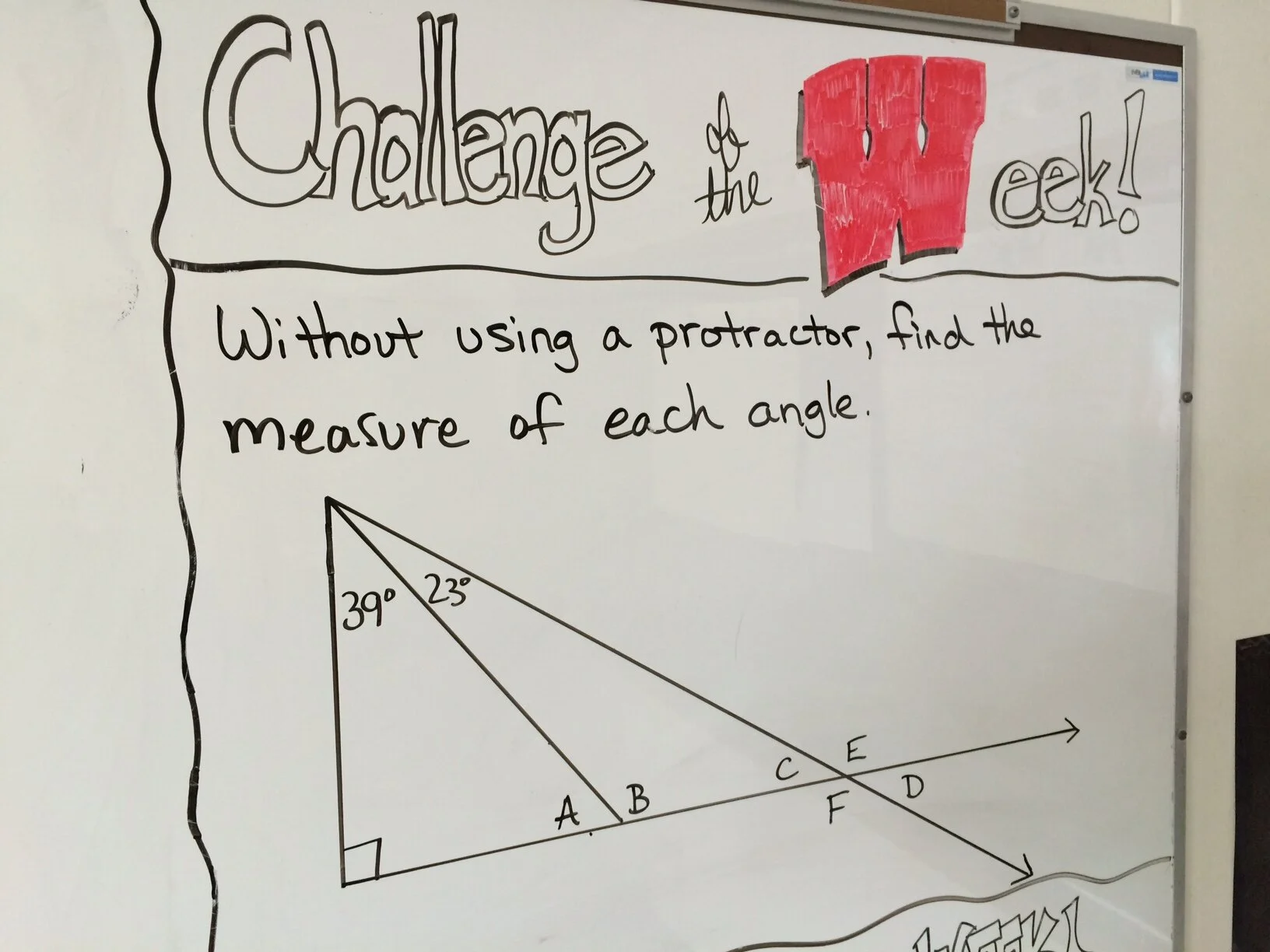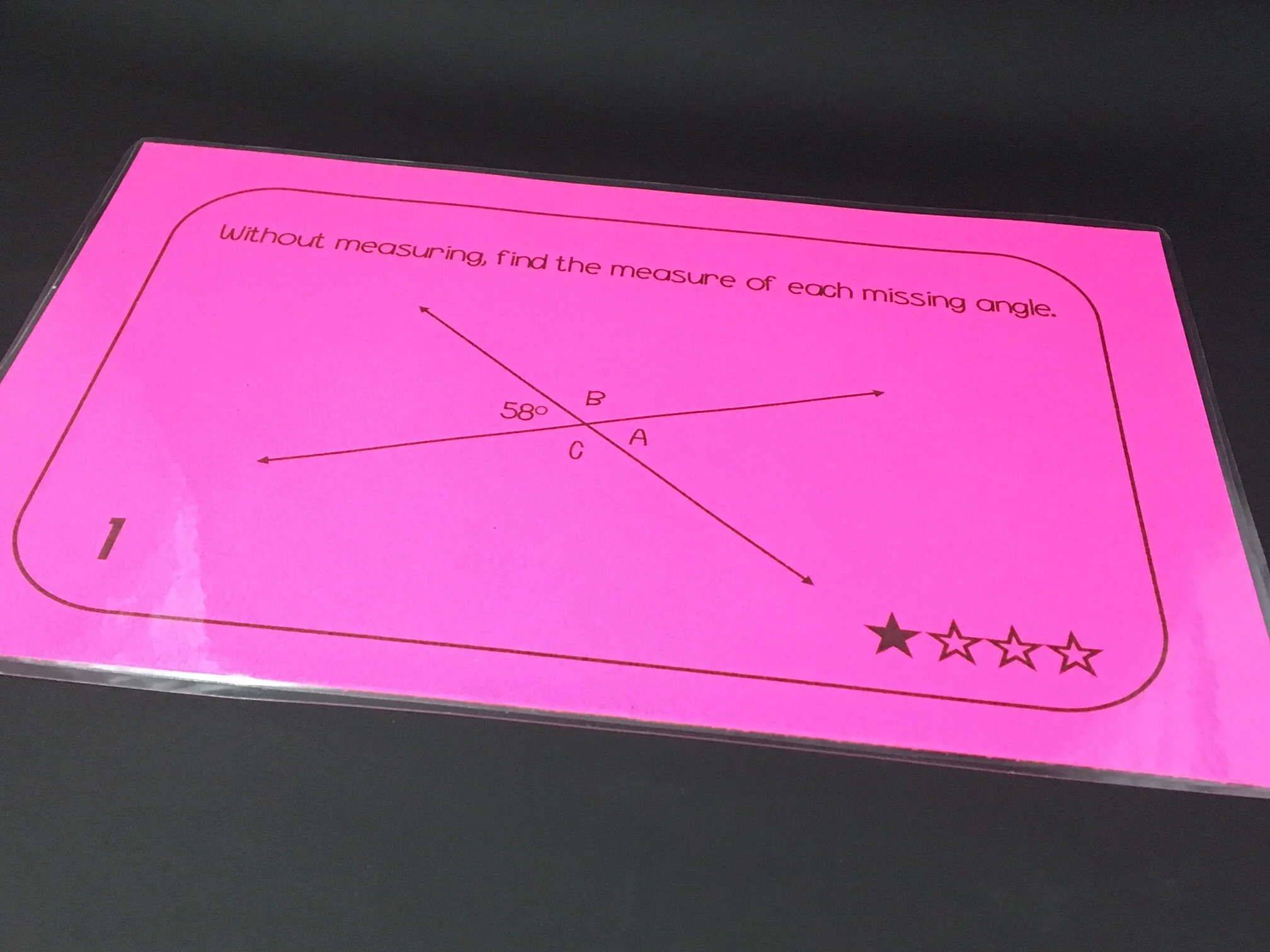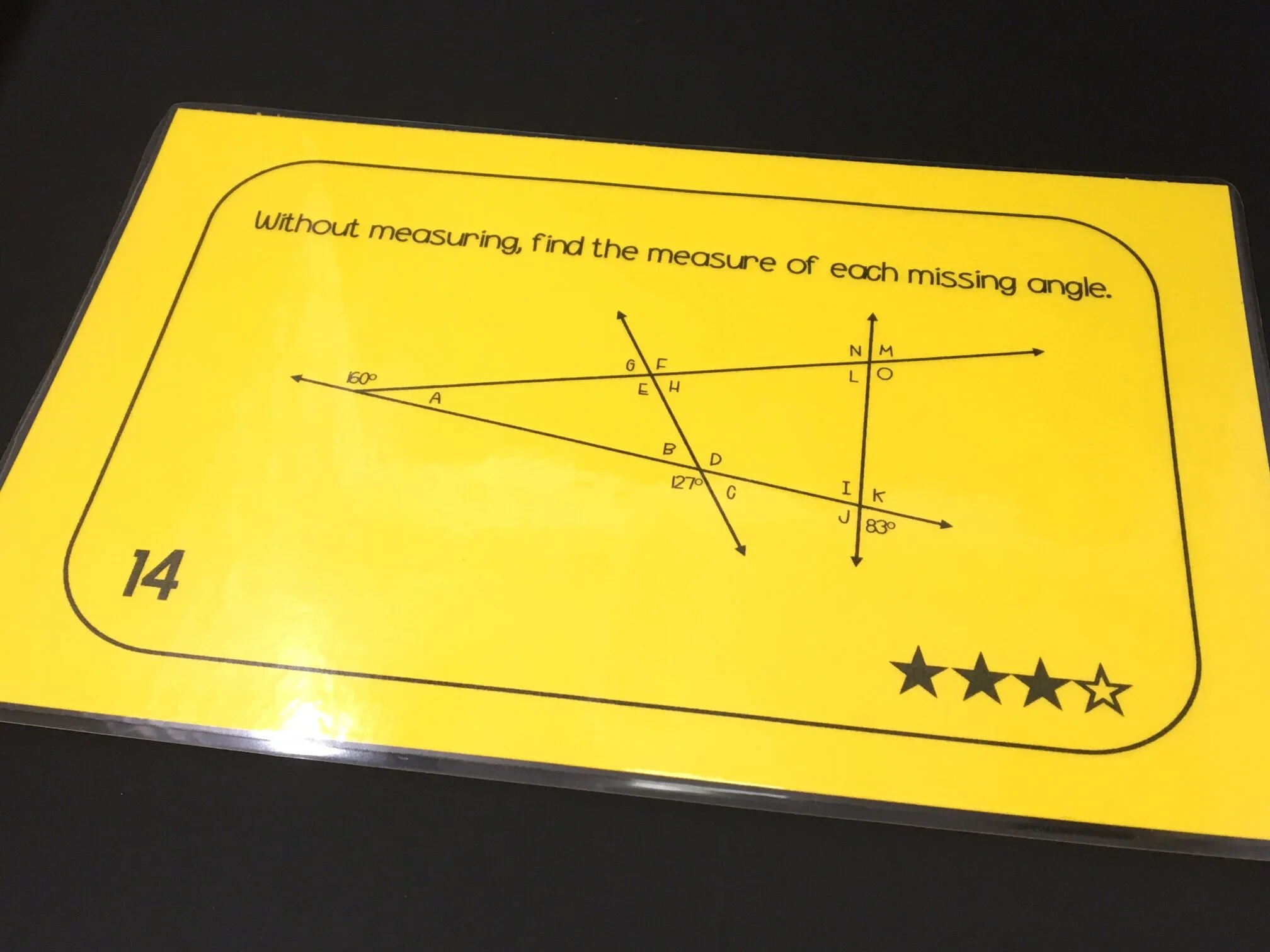All About Angles in Middle School Math (With Freebies and Task Cards!)
Every year, I enjoy the transition from our algebra units to geometry. It is a nice change of pace for my 6th and 8th grade math students. In past years, I have noticed that students really enjoy angle challenge problems, like the one pictured, where they must find the missing angles without measuring. I have always included these in my Challenge of the Week problems this time of year. If you haven't downloaded these yet, you can find both my 6th Grade Math Challenge of the Week and 8th Grade Challenge of the Week problems for free in my TpT store!
These types of problems have become so popular with my students, that I decided to create an entire set of Angle Relationships Task Cards! To help differentiate, I decided to divide up the problems into four different levels of problems (1-star, 2-star, 3-star, and 4-star). For the first three levels, I created 24 different cards. For the 4-star problems, I currently have two task cards, but plan on adding to this set in the future!
ONE-STAR PROBLEMS
The one-star problems include 24 pretty basic angle relationship problems. Each one has two intersecting lines and students are given one of the angle measures. They must use their knowledge of vertical angles and supplementary angles to find the remaining three angles!
TWO-STAR PROBLEMS
The two-star problems include 24 problems. These are slightly more complicated, since students must use their knowledge of finding missing angles in triangles to find the missing angles. They also use supplementary and vertical angles for these problems.
THREE-STAR PROBLEMS
The three-star problems are one extra step up from the two-star challenges! Not only do students use vertical, supplementary, and triangle angles, but they also must use their understanding of angles in quadrilaterals. This is the level that many of my 6th graders choose to try.
FOUR-STAR PROBLEMS
The four-star problems are the ultimate challenge! For these problems, students must find the missing measure of lots of angles, using everything described in the last three levels. In addition, they must know how to find the sum of the angles of other polygons (pentagons, hexagons, etc.) to help find missing angles! These have been great for my high achieving students.
I hope you can find a use for some of these resources in your math classroom and would love to hear what you do to teach angle relationships in your math classroom in the comments below!





